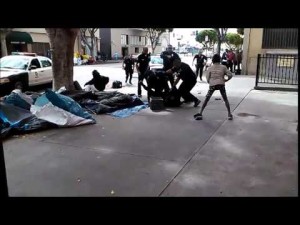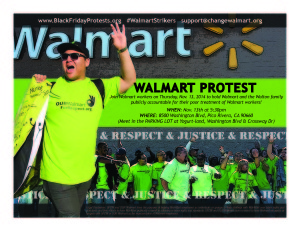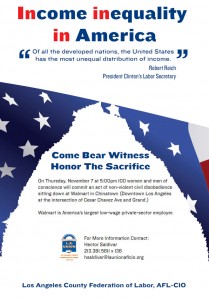Eric Garner is the unarmed 43 year old black man, who was killed by the NYPD in Staten Island in July. The whole incident was recorded. He was placed in a choke hold and can be heard saying 11 times: “I can’t breathe,” before he died. The officer who killed him was not indicted. The coroner had ruled it a homicide.
Then the Lord God fashioned the human,
dust from the earth,
and blew into his nostrils the breath of life,
and the human became a living creature. (Genesis 2:7)
I can’t breathe.
God blew into his nostrils the breath of life,
into that dust,
like a female impregnated by a male,
for they join and this dust is filled with all.
With whom? Spirits and souls. (Zohar 1:49)
I can’t breathe.
Dust from the earth,
this dust is the holy land
and it is the place of the Holy Temple.
God blew into his nostrils the breath of life,
this breath of life is the holy soul that is drawn from that supernal life. (Zohar 3:46)
I can’t breathe.
Dust from the earth,
from the lower realms,
God blew into his nostrils the breath of life,
from the upper realms. (Breishit Rabba 12:8)
I can’t breathe.
Thus the dictum of Scripture, By the word of the Lord were the heavens made, is analogous to its dictum, And all the host of them by the breath of His mouth, in the same verse. For the terms His word and His saying are used figuratively in the same way as the terms His mouth and the breath of His mouth, the intention being to signify that the heavens have come to exist through His purpose and will. (Maimonides, Guide for the Perplexed 1:65)
I can’t breathe.
Breathing in, I calm body and mind.
Breathing out, I smile.
Dwelling in the present moment I know
this is the only moment. (Thich Nhat Hanh, Being Peace)
I can’t breathe.
At the core is the breath, instinctive, not given
not taken, it is not a privilege or a right, it is
even independent of oneself, even on those
dark nights when in the loneliness of an empty bed
you try harder than you ever have not to breathe
you do, and the breath breathes you, and you are
again.
I can’t breathe.
I hate, I despise your feast days,
And I do not savor your sacred assemblies.
Though you offer Me burnt offerings and your grain offerings,
I will not accept them,
Nor will I regard your fattened peace offerings.
Take away from Me the noise of your songs,
For I will not hear the melody of your stringed instruments.
But let justice run down like water,
And righteousness like a mighty stream. (Amos 5)
I can’t breathe.
Learn to do good.
Devote yourselves to justice;
Aid the wronged.
Uphold the rights of the orphan;
Defend the cause of the widow.
Alas, she has become a harlot,
The faithful city
That was filled with justice,
Where righteousness dwelt—
But now murderers. (Isaiah 1)
I can’t breathe.
The violence then of the decreation
of the moment when the breath no longer
comes. What did that feel like? What
unearthly panic? What desperate rage
and struggle brings to the surface
the cry for the basic elements of life.
I can’t breathe.
I can’t breathe.
 We are on a journey—but where are we going? Continue reading
We are on a journey—but where are we going? Continue reading 



